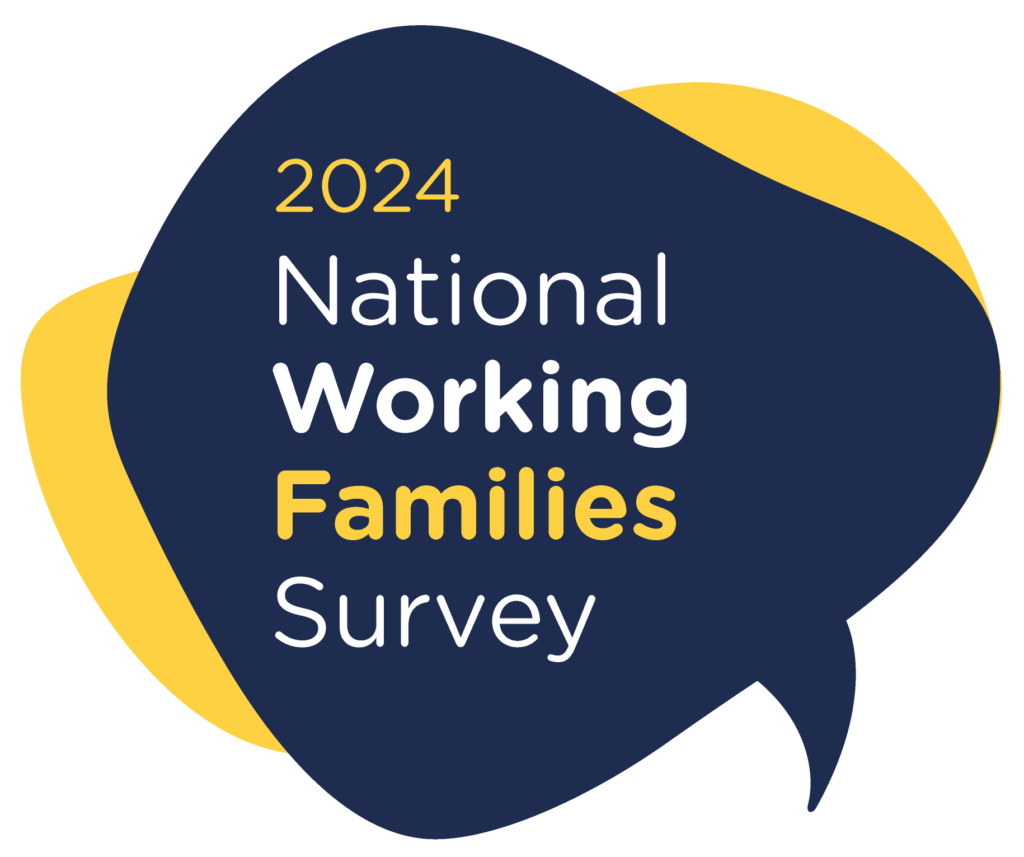Depression and anxiety during pregnancy and the first year of parenting (the perinatal period) affects around 20% of mothers and 10% of fathers. That is almost 100,000 parents in Australia each year. Many of these parents continue their everyday life, including their employment, with those around them unaware of their suffering.
This year, the Perinatal Anxiety and Depression Week will be held 8-14 November. Parents At Work collaborated with the Gidget Foundation to produce two podcasts (at the bottom of this page) with Gidget Foundation CEO Arabella Gibson and Parents At Work CEO Emma Walsh – ‘The Impact of Perinatal Depression & Anxiety on the Workplace’, aimed at employers, and ‘Perinatal Mental Health Week’ for employees.
Although we have come a long way in the open discussion and knowledge of mental health, many suffering still feel isolated and too afraid to share their experience – especially at work. Perinatal Mental Health Week is an opportunity to have real, open conversations around mental health, especially for new and expectant parents.
Perinatal anxiety and depression doesn’t discriminate, and can affect women and men from all walks of life. It has a huge impact on a person’s life, and if undiagnosed and untreated, can lead to suicidal thoughts. Those experiencing it can feel fatigued, a sense of being out of control, distant from those around them, stressed, guilty, overwhelmed and unable to concentrate.
The common pressures of the workplace can exasperate these existing feelings, and so it is important that employers support their employees at these transitional, often stressful, stages of life.
Don’t forget dads
When we think about a new parent’s mental health, it can be easy sometimes to focus solely on mothers. But dads can suffer too. Around 1 in 20 men experience depression during their partner’s pregnancy (antenatal) and up to 1 in 10 new dads struggle with depression following the birth of their baby (postnatal).
While most mothers take time off work after the arrival of a baby, most fathers have minimal leave, if any, and are then expected to continue working as if their life were the same as before – often without any further support from their employer. The expectations and pressures that come with being a new father can cause feelings of distress, isolation, and stress, and can lead to perinatal anxiety and depression.
“We know the majority of parents are re-entering the workplace pretty quickly. For dads, it’s usually within a week of having a new baby. Their whole life has changed but nothing has changed at work. And for mums, the average is seven months – they are probably still breastfeeding, and not sleeping through the night. And so they bring all those challenges at home to work.” – Emma Walsh, CEO Parents At Work
If not identified and managed, these mental health issues can lead to higher rates of absenteeism, reduced productivity and lower return to work rates. But when employees feel fully supported at work by their employer, the obvious economic benefits are improved staff morale and productivity.
Emotional wellbeing

When a new baby arrives, it is easy for parents to forget to look after themselves, or even find any time to spend together or alone.
Some of the risk factors for perinatal depression and anxiety can include:
- Lack of emotional and/or practical support from family and friends
- Lack of support or understanding from a partner
- Stress related to finances, work or moving house
- Certain personality types e.g. a perfectionist personality
- Previous mental health issues or family history of issues
- Trauma background
- Recent bereavement
- Age less than 18 years of over 35 years
- Coming from an Aboriginal or Torres Strait Islander culture
- Living in a rural or remote location
- Being from a culturally and linguistically diverse background
However, there are things new parents can do to support themselves, here are some suggestions:
- Look after your nutrition and physical wellbeing. Eating well and staying active can ensure you remain feeling good, and exercise is a proven stress management technique.
- Stay connected with colleagues and people from ‘before’ the new baby arrives. It can easy to quickly feel distant and separate from what’s happening at work or even socially ‘pre-parenting’. A coffee catch up or even a phone call can keep you feeling connected.
- Make some time for yourself and your partner, even if it is a ‘debrief’ together at the end of a busy day. Try and share what you’re feeling with each other, and lean on each other for support at what can be a demanding time. Simply talking about how we are feeling can make a world of difference.
- Avoid comparing yourself to others – many of us find ourselves spending ‘down time’ scrolling through social media, only to be left feeling like we’re not doing as well as others. Remember that this is your journey, you know your baby best, and often the true story behind pictures is very different. Be mindful of how social media makes you feel, and utilise the support it can give rather than allow it to get you down.
- Be easy on yourself. Being a parent can be hard work, and those first few months after a child arrives are challenging for most! It’s good to acknowledge that babies are hard work, and don’t be afraid to ask for help from those around you.
Gidget Foundation Australia’s recently released an antenatal video which is a free resource available to all expectant and new parents nationally. The video offers evidence-based, trusted information from mental health clinicians, an obstetric specialist and parents with lived experience of perinatal depression and anxiety (PNDA).
So what can you do as an employer, to support your managers and employees?
“Obviously implementing a full emotional well-being program is ‘gold star’ in this space. But on a basic level, it’s about keeping an eye on your staff, and noticing when they are unable to concentrate, maybe struggling to make certain decisions, or maybe their to-do list is becoming overwhelming, and they’re not actually getting much done. You might see a lot of absence in the workplace … Try to notice, and take action that will support that person to identify what they may be experiencing. And have those tricky conversations that need to be had sometimes to really help someone”. – Arabella Gibson, CEO Gidget Foundation
 In addition, employers can also support their employees who may be experiencing perinatal anxiety and depression by:
In addition, employers can also support their employees who may be experiencing perinatal anxiety and depression by:
- Checking in with employees regularly for an informal chat. Provide a supportive atmosphere where they can feel safe in discussing any mental health issues they may be experiencing. Early intervention provides the best chance of a full recovery.
- Ensuring employees have access to information and resources about perinatal anxiety and depression, and know how to access support. A guide to accessing support can be found on the Gidget Foundation website here.
- Providing employment options that can ease the stress during this time. Flexible work options, for example – shorter working hours or working from home part-time. Another option may be sick leave or carer’s leave – let your employee knows what they are entitled to.
- Staying in touch with employees while they are on parental leave – many employees return to work after parental leave not only feeling overwhelmed from the changes in their life, but feeling isolated and distant from their team and work situation. Keeping in touch regularly ensures they remain connected and feel supported when it comes time for their return to work.
- If an employee is away from work during their recovery, let the team know (with their permission) and work together to ensure your employee stays well connected to their colleagues. Even sending a text or email now and then can help those suffering feel supported.
- Recognise perinatal anxiety and depression as a medical condition, that needs treatment and support like any other medical issue. Parents who are suffering can be treated and recover, with help from trained professionals, and it can of great comfort to employees to know this.
- Create an organisational culture where employees feel comfortable and safe in sharing their experiences, or letting their manager know something is wrong. A positive, open environment removes any stigma from mental health issues and allows employees to feel fully supported in their experience and recovery.
Another useful resource to share with employees is the Parents At Work Preparing for Parental Leave Toolkit, which was created in collaboration with the Gidget Foundation for Parents At Work members. It provides information and resources on planning for parental leave, managing your pregnancy at work, staying in touch while on leave, and more.
The more support we can give our employees in this major transition period of their life, the better equipped they will be to handle the various challenges and emotional, mental and physical changes that are a part of this transition.
If you feel like you or your employee needs support, visit your GP or the Gidget Foundation website for help.
Listen to the two podcasts below for the full conversations between Emma and Arabella.


